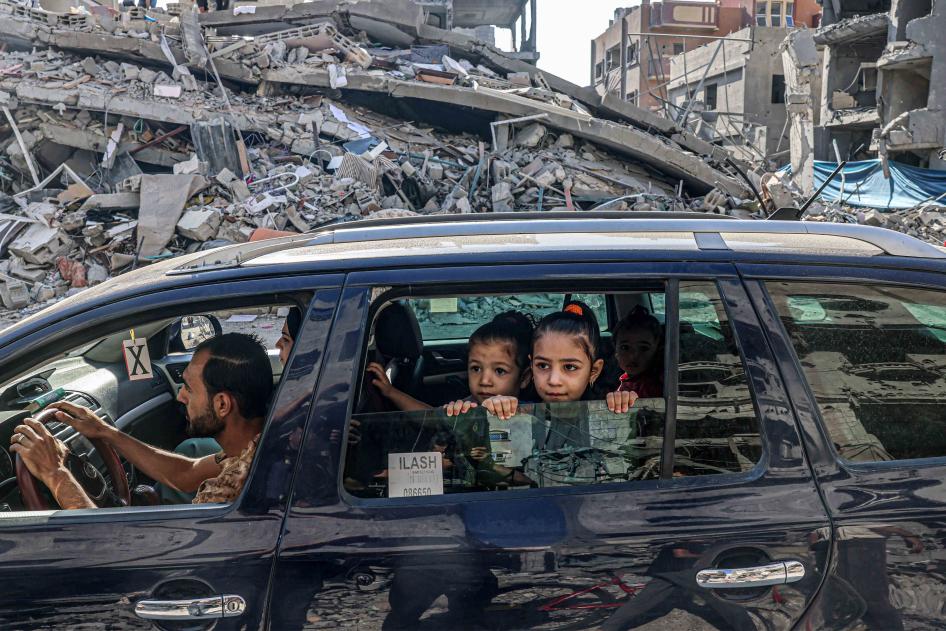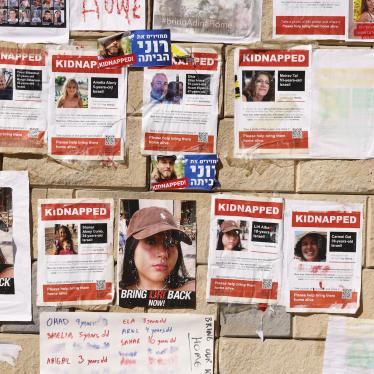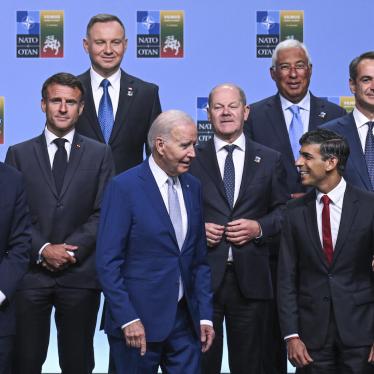The image of haggard doctors standing amid bodies and rubble following the explosive strike on al-Ahli Arab hospital in Gaza has sent shock waves around the world, which was still reeling from horrific Hamas-led attacks and the relentless Israeli bombardment and siege of Gaza. In the past two weeks, thousands of Israeli and Palestinian civilians have been killed with a speed and brutality that was previously unimaginable in Israel and Palestine. There is little sign that the spiral of mass killing will subside soon. Instead, there are clear warning signs that further atrocities are imminent.
United Nations experts have cautioned that “atrocity crimes are processes, not singular events. They are foreshadowed by the presence of risk factors and early warning signs …. [giving] many opportunities to prevent crises from escalating. After they reach a certain stage, however, the options for action are both more limited and more costly.” Since 2021, the UK Government promised to adopt a more integrated approach to tackling conflict and instability, with an increased emphasis on atrocity prevention.
Even before the Hamas-led October 7 massacres, warning signs were already blinking red – a track record of unlawful attacks by Israeli armed forces and Palestinian armed groups, unprecedented repression and apartheid against Palestinians, dehumanizing rhetoric by Israeli officials and glorification of attacks on civilians by Hamas and other Palestinian armed groups. These trends have been exacerbated by the absence of safeguards to restrain actors likely to commit atrocities.
Experts in atrocity prevention often refer to a “trigger” event. The brutality of October 7 shook Israelis to their core. The ongoing trauma of scores of hostages being held in Gaza, exacerbated by the October 16 release of a video of a young French Israeli woman in Hamas custody, has only deepened that fury. Talking to Israeli partners and friends, almost everyone knows someone either killed when Hamas-led fighters shot civilians en masse, took hostages into Gaza or who narrowly survived the onslaught by barricading themselves for hours as militants hunted civilians’ home. The fighters killed more than 1400 Israelis, according to Israeli officials. These acts are heinous war crimes, for which the perpetrators should be held accountable.
With their deliberate killings, Hamas-led attackers have already proven their capacity and willingness to commit atrocities. Armed groups in Gaza continue to indiscriminately fire thousands of rockets into civilian areas of Israel. When threatening to broadcast “with sound and video” the “execution of one of our enemy’s civilians hostages”, a spokesperson for Hamas’s military wing said “the enemy does not understand the language of morals and humanity” explaining it was addressing “him in the language he knows well”.
The conduct of the Israeli military response appears to reflect what the Israeli human rights organization B’tselem describes as a “revenge policy”. Some parts of Israeli civil society, including family members of those killed in the attack or taken hostage, have attempted to push back on efforts to use their grief to justify the destruction of Gaza. Their pleas seem to have fallen on deaf ears, as the Israeli government persists in using incendiary language and suggesting that the entire population of Gaza – 2.2 million people, half of whom are children – should be collectively punished.
The Israeli army and Benjamin Netanyahu, the prime minister, have been using social media to triumphantly share images of airstrikes reducing entire blocks and neighborhoods in Gaza to rubble with no mention of military objectives. Israeli army spokesperson Daniel Hagari has boasted, “Gaza will eventually turn into a city of tents. There will be no buildings,” adding “the emphasis” is “on damage and not on accuracy”.
3,785 people in Gaza have been killed between October 7 and 19, including more than 1,500 children, according to Gaza’s health ministry. At the Knesset, Merav Ben-Ari, a member of Lapid’s party responded to concern for them by saying that “the children in Gaza brought it upon themselves”.
On October 9, the defense minister Yoav Gallant said, “We are fighting human animals, and we act accordingly.” The energy minister Israel Katz, who ordered to cut electricity, fuel and water to all Gaza residents, said that “there is no reason” to provide humanitarian aid to the Palestinian people until Israeli forces “eliminate” Hamas.
Even Israel’s President Issac Herzog, while saying that Israel respects international humanitarian law, said “it’s an entire nation out there that is responsible”.
Calls to commit mass atrocities by a party capable of doing so and actions being taken consistent with those words, need a serious and effective response from the international community. Prominent Jewish lawyers in the UK have written urging Israel to allow the laws of war to guide its response. But UK government officials have been more open-throated in their embrace of Israel’s tactics.
High profile visits to Tel Aviv from Rishi Sunak and Joe Biden, coupled with a US veto and a UK abstention on a balanced security council resolution, which included an unequivocal condemnation of the October 7 attacks and action to promote the delivery of assistance, sends the wrong message. Senior UK politicians, including the foreign minister James Cleverly and Labour’s Keir Starmer have not condemned Israel’s unlawful blockade. It’s time for a much clearer stance from Western leaders – condemning violations when they see them and taking action against those responsible for international crimes.
We are witnessing loss of civilian life at a scale we have not seen in the modern history of Israel and Palestine. With deadlock paralyzing international institutions, leaders should rise to the moment and act to prevent further mass atrocities before it’s far too late.











